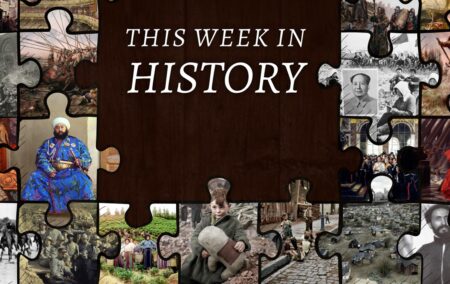This Week in History recalls memorable and decisive events and personalities of the past.
April 7th, 1939 – Benito Mussolini declares an Italian protectorate over Albania and forces King Zog I into exile
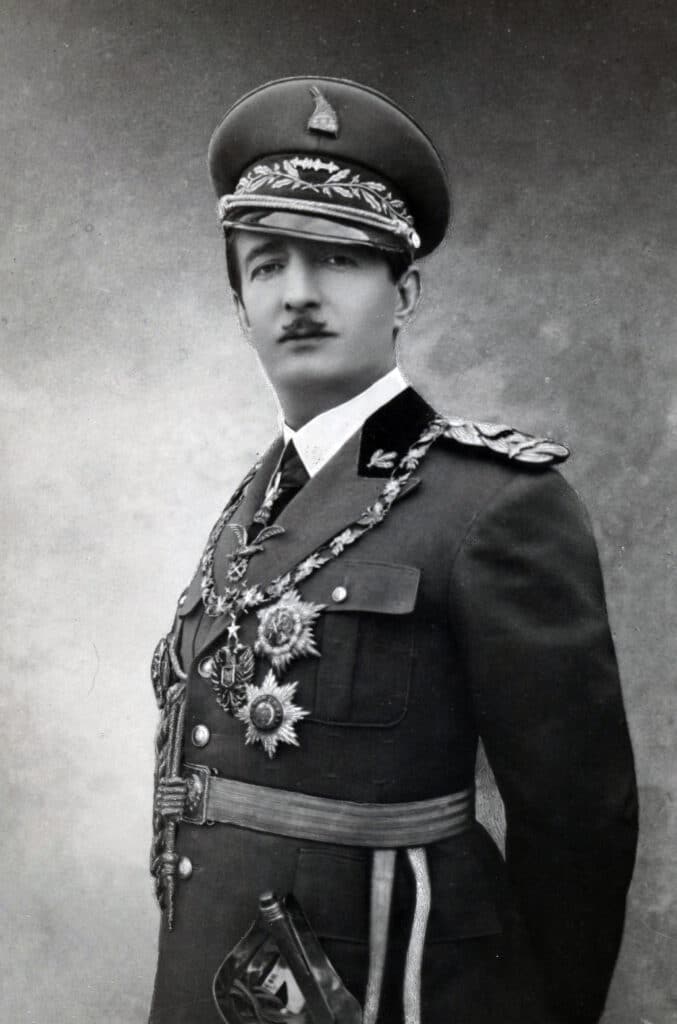
King Zog I of Albania
In the months leading up to the outbreak of the Second World War, the Kingdom of Italy added another victim to the list of countries which had been swallowed up recently by great powers: that of the small state of Albania.
Albania had a traumatic birth as a state in the 20th century. It had not broken away from the Ottoman Empire like other Balkan nations, such as Serbia or Bulgaria, but in the early 20th century it revolted against Ottoman rule, and finally in 1914 was granted recognition of its independence by the great powers as the Principality of Albania.
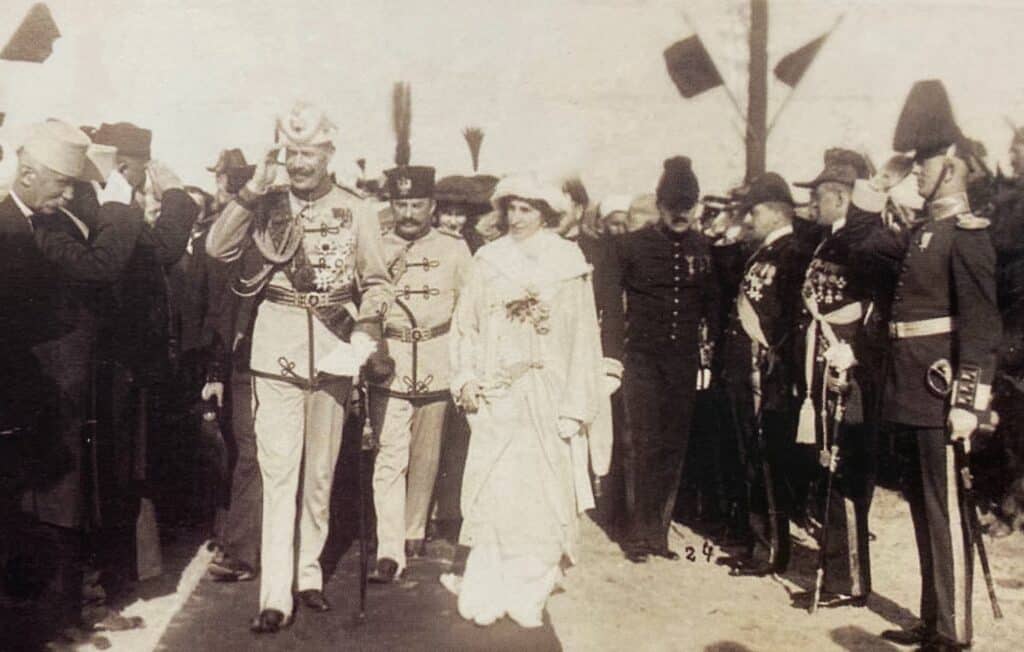
Wilhelm, Prince of Albania and his wife Princess Sophie of Albania arriving in Durrës, Albania, on 7 March 1914
The politics of Albania would be extremely tumultuous from the start; during the First World War, with its being occupied by both the Entente and the Central Powers, the country would effectively collapse into small feuding mini states.
Even when the war ended, no central authority reemerged, and Italian troops remained in the main port city of Vlorë.
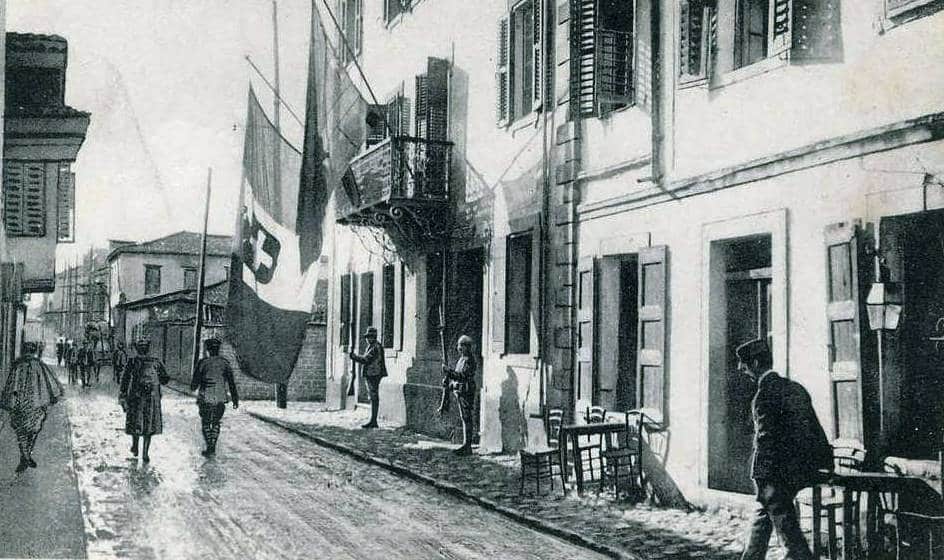
Italian soldiers in Vlorë during the First World War. The tricolour flag of Italy bearing the Savoy royal shield is shown hanging alongside an Albanian flag from the balcony of the Italian headquarters
In fact, in 1920 the victors of the First World War sought to divide Albania between Yugoslavia and Italy to reduce tensions between those two countries. This was, however, blocked by America.
While Italian troops would withdraw in 1920, Yugoslav troops would remain and in fact launched an invasion in 1921. When this was opposed by the great powers, Yugoslavia withdrew.
While foreign threats were now diminished, tribal conflict and internal conflict plagued Albania until, in 1925, a new government which had seized power abolished the Principality and declared Albania a republic under the rule of Ahmet Zogu, effectively a military dictator.
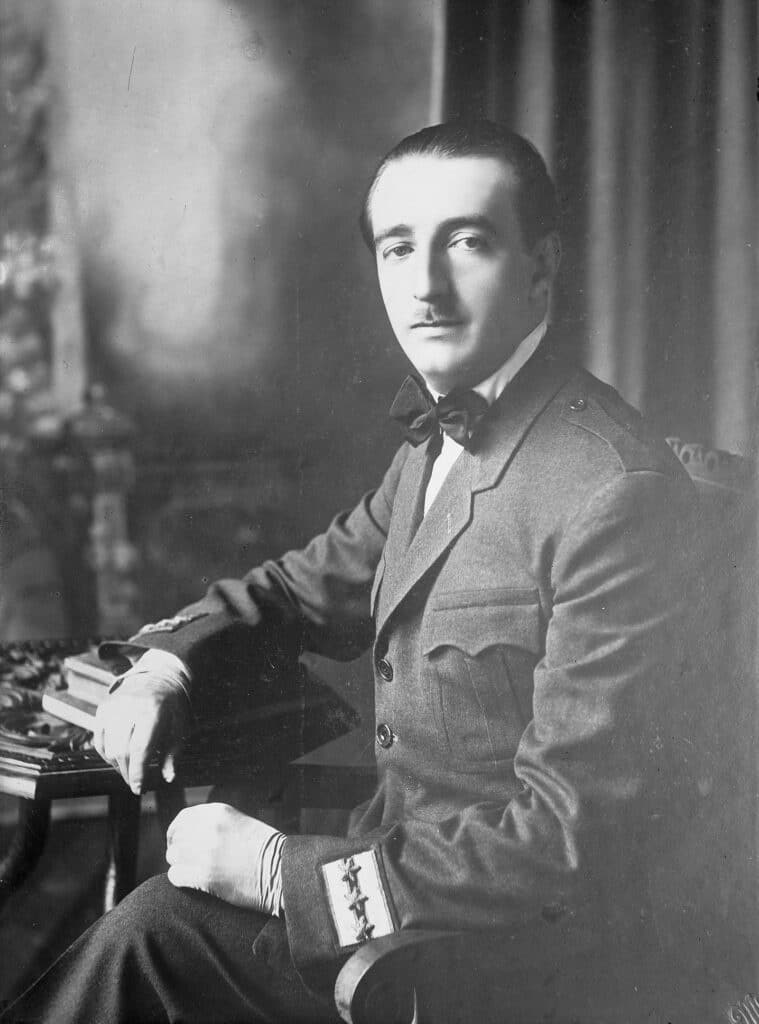
Ahmet Zogu
The new republic developed strong relations with newly fascist Italy and quickly began to be sucked into the Italian orbit. Italians were granted extensive mining rights, and Italian instructors were allowed to begin training Albania’s army.
In 1928 Zogu managed to secure near total control of Albanian politics, and went on to abolish the Republic and have himself declared King of Albania, as King Zog I.
In 1931 Albania ran out of money and entered a serious economic crisis during which Zog was forced to ask Italy for a large loan. It was a loan Albania soon defaulted on. This compelled Albania to concede to Italy’s exerting ever greater control over many of its industries, and forcing the country to join a customs union with it.
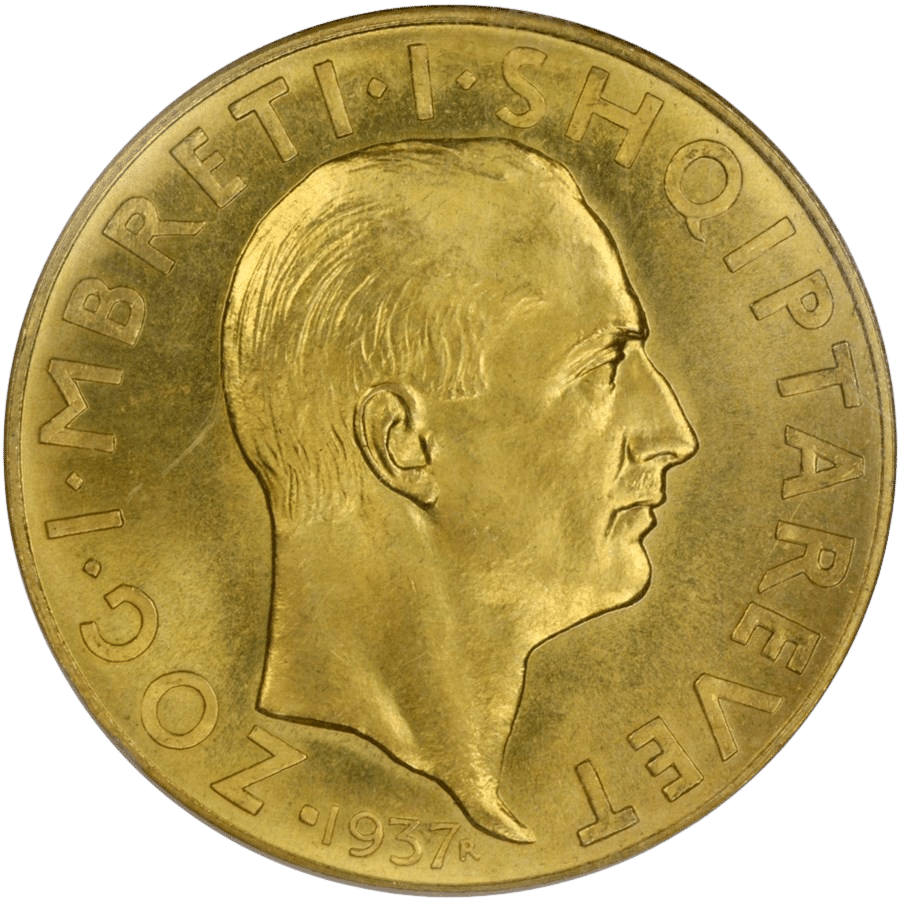
Zogian gold hundred-franc coin of 1937
Things came to a head in 1939. As Nazi Germany conquered Czechoslovakia and Austria, Italy became desperate to prove it was also a great power in the Axis alliance and began making plans to take full control of Albania.
In late March 1939, Italy sent Zog an ultimatum demanding Albania accept Italian occupation. When the king refused, Italy invaded on 7 April, forcing Zog to flee the country.
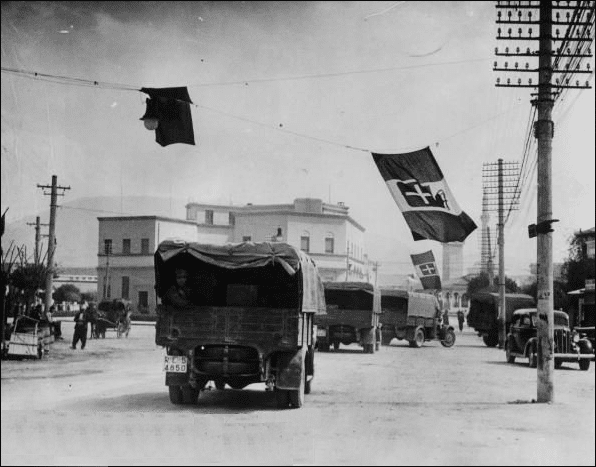
Italian invasion of Albania
Italy would retain control of Albania until 1943 when the Germans would take over the country.
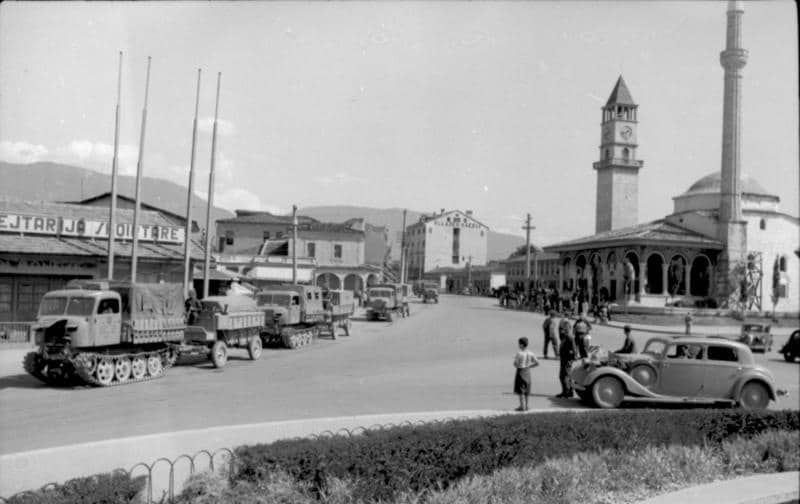
German column in Tirane [Bundesarchiv, https://commons.wikimedia.org/w/index.php?curid=5408560]
The country would be liberated in November of 1944, and would quickly fall under the control of Soviet-backed partisans who installed a Stalinist regime that would last until 1991.
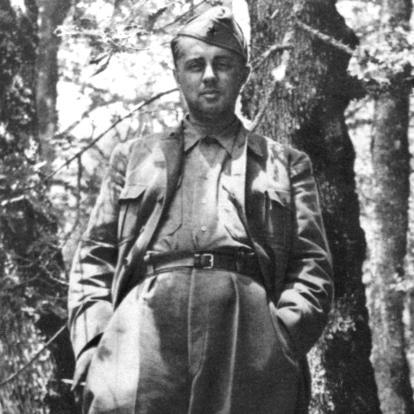
Enver Hoxha, as a communist partisan in 1944, the year in which he became leader of Albania, a post he held until his death in 1985
If you like what you have just read, support the Daily Friend

